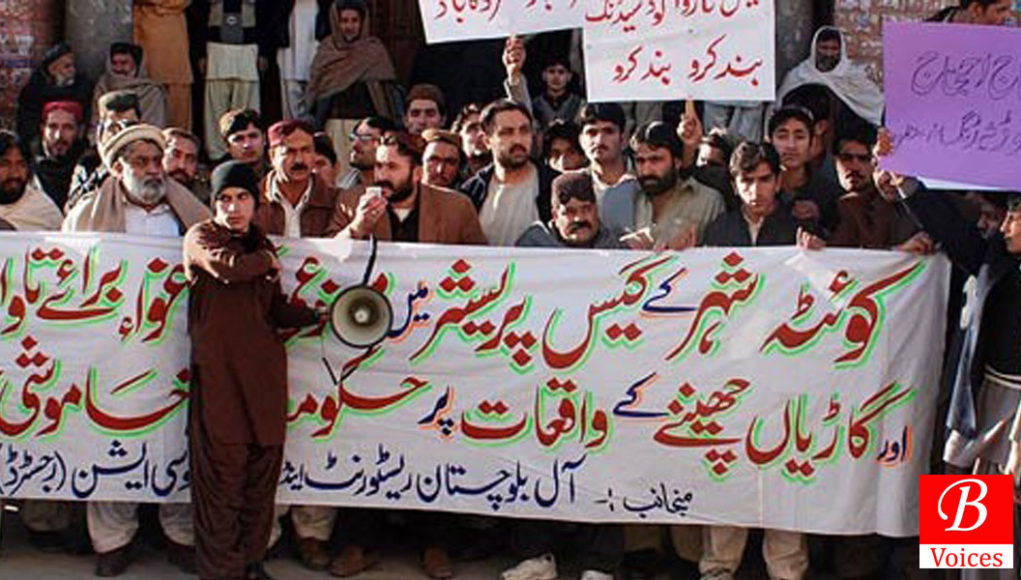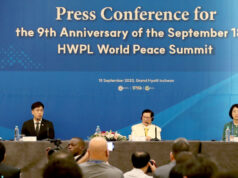Adnan Aamir
Monday was a cold morning in Quetta, with dark clouds hovering in the skies since early morning. Vehicles were honking and drivers were shouting on Sariab Road near Bibi Ziarat Town. Traffic was blocked because the road had been closed by protestors. Led by women, the protestors were demonstrating against almost the absence of gas in their households.
Media personnel reached the spot as soon as they heard of the road blockage. Journalists asked protestors to speak on camera about their protest. Surprisingly, a chador-clad woman with a veil came up to express her frustration over the absence of gas supply. She said that every morning she woke with the hope that there was enough gas for her to light her stove and cook breakfast for her kids. She lamented that since the temperatures had fallen in Quetta, gas supply had simply vanished. She lamented that this was the condition of Balochistan’s largest city. “Where else can people go to have regular gas supply in winter?” she asked.
Another protestor sporting a grey beard complained that his family has been facing the problem of low gas pressure for over a decade. “Every year the government gives us assurances but no action is taken,” he said. Protestors also complained of inflated gas bills which they were forced to pay despite not having any gas in their pipes.
The protestors blocked the Quetta-Mastung road. Despite several hours of protest, officials of the Sui Southern Gas Company (SSGC) did not show up to address the demands of the protestors. Members of the provincial assembly came to the protest and asked demonstrators to call off their protest. With heavy rainfall expected and the weather getting worse, the protestors had no choice but to disband.
Every year when winter arrives, poor gas pressure becomes the main problem faced by citizens of Quetta – especially those living in underprivileged neighborhoods of the city. The reason for the gas shortage is that SSGC does not supply enough gas to meet the demands of Balochistan in general and Quetta in particular.
According to the data available on the official website of SSGC, the Quetta region gets the gas supply of 147 million cubic feet per day (MMCFD) whereas the capacity of the pipelines is 280 MMCFD. Compare it with Karachi East, where the supply is 310 MMCFD and the capacity is 228 MMCFD. The demand for gas increases in winter in Balochistan but the supply is not increased in the same proportion by SSGC. This results in severe shortages and protests by citizens.
Some posh areas in Quetta do get proper gas supply because pipelines to those areas are wider, whereas, for the densely populated areas of the city, especially those along Sariab Road, pipes are narrow. Here, consumers have next to no gas supply despite the punishing weather.
When asked why they were failing to provide adequate gas to the people of Quetta, officials of the SSGC come up with an exaggerated claim of theft. They maintained that they cannot increase supply to the neighborhoods with high gas pressure. This is a false claim because gas theft can occur where there is enough gas supply. These days, due to tough laws, it is not possible to carry out gas theft at a mass level. Gas theft taking place on a small scale is made possible by collusion of officials who allegedly take bribes to ignore the theft.
The SSGC is able to maintain this position because it is under federal control. There is nothing that people of Balochistan or their elected provincial representatives can do to influence the decisions of this company. There is not a single member from Balochistan in the 11-member board of SSGC. Balochistan Chief Secretary Fazeel Asghar is a member of SSGC’s board but he does not belong to the province. There is zero representation of Balochistan in the SSGC board, meaning that the top decision-makers of this body have no interest in addressing concerns of this province.
Furthermore, the Oil and Gas Regulatory Authority (OGRA) is the federal body responsible for regulating SSGC. Unfortunately, there is no representation of Balochistan among the members of OGRA. This body also does not have the proper motivation to regulate SSGC to protect the interests of the people of Balochistan.
This leaves the provincial government as the only body which can raise its voice to address this problem. Since the SSGC is under federal control, the provincial government cannot directly influence the decisions of SSGC but it can approach the federal government for this matter.
Chief Minister Jam Kamal served as a state minister for petroleum and natural resources from 2013 to 2018. He knows very well the problem of low gas pressure in Balochistan and also the lack of interest shown by the top management of the SSGC to solve this problem. In these circumstances, the apparent lack of interest by CM Jam Kamal is baffling. Otherwise very active on Twitter, he remains silent on this matter. With this attitude of the CM, there is little hope for the people of Balochistan.
It is expected that Quetta will witness more protests against low gas pressure. Women and children will keep blocking roads in the hope of having some meaningful impact. However, they will only be provided empty assurances to end their protest. The problem of low gas pressure will continue unless the SSGC is brought under provincial control.
Originally published in The Friday Times
Share your comments!








